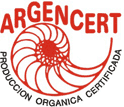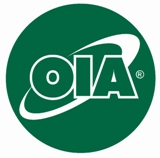IFOAM EU introduces guidelines for pesticide residue contaminations
Brussels /10/2011: The IFOAM EU Group has published the first edition of the “Guideline for Pesticide Residue Contaminations for International Trade in Organic”. The guideline provides strong support for organic trading and processing companies on how to deal with this difficult topic. More importantly it provides a practical approach that companies can use to help them in the communication with their suppliers and clients.
Bavo van den Idsert, vice-president of IFOAM EU confirms: “One of the main problems for organic companies in relation to residue contaminations is how to interpret a positive residue finding and what it means for the organic status of the product. In relation to their suppliers and clients this interpretation is very important, because nobody wants to be in doubt about the organic status. The new guideline provides important ingredients for the improvement of communications between different organic stakeholders when residue contaminations occur. Especially the approach of the action-level of 10 ppb provides very practical solutions: in general only in case of contaminations above the strict action-level of 10 ppb, derived from the Baby-food Law, an investigation is strongly recommended.”
Christopher Stopes, president of IFOAM EU commented: “The newly established ‘IFOAM EU Guideline for Pesticide Residue Contaminations for
International Trade in Organic’ is a good example of a stakeholder initiative to solve problems. The organic trade and processing companies are convinced that this private initiative by the sector
is far better than new legislation on residues in organic products. The contamination topic is sensitive and complex so it has to be dealt with on a case by case approach instead of setting one
arbitrary legal level that rules what is organic and what not. The legal approach would reduce organic legislation to absence or presence of pesticides and nobody wants that. The new guideline,
which will be evaluated regularly, is the right way to handle the difficult residue topic. I am convinced that the IFOAM EU guideline for pesticide residue contaminations can be helpful for all
organic stakeholders.”
The guidelines will be the subject of a special workshop session at the forthcoming IFOAM EU Group conference “Organic processing – Improving quality and environmental performance”3 to be held on the 14 October 2011, in Lodz, Poland
The document can be viewed and downloaded from the IFOAM EU Group website.4
More information:
IFOAM EU Group, phone + 32-2-280 12 23, Fax: +32-2-735 73 81,
info@ifoam-eu.org, www.ifoam-eu.org
















